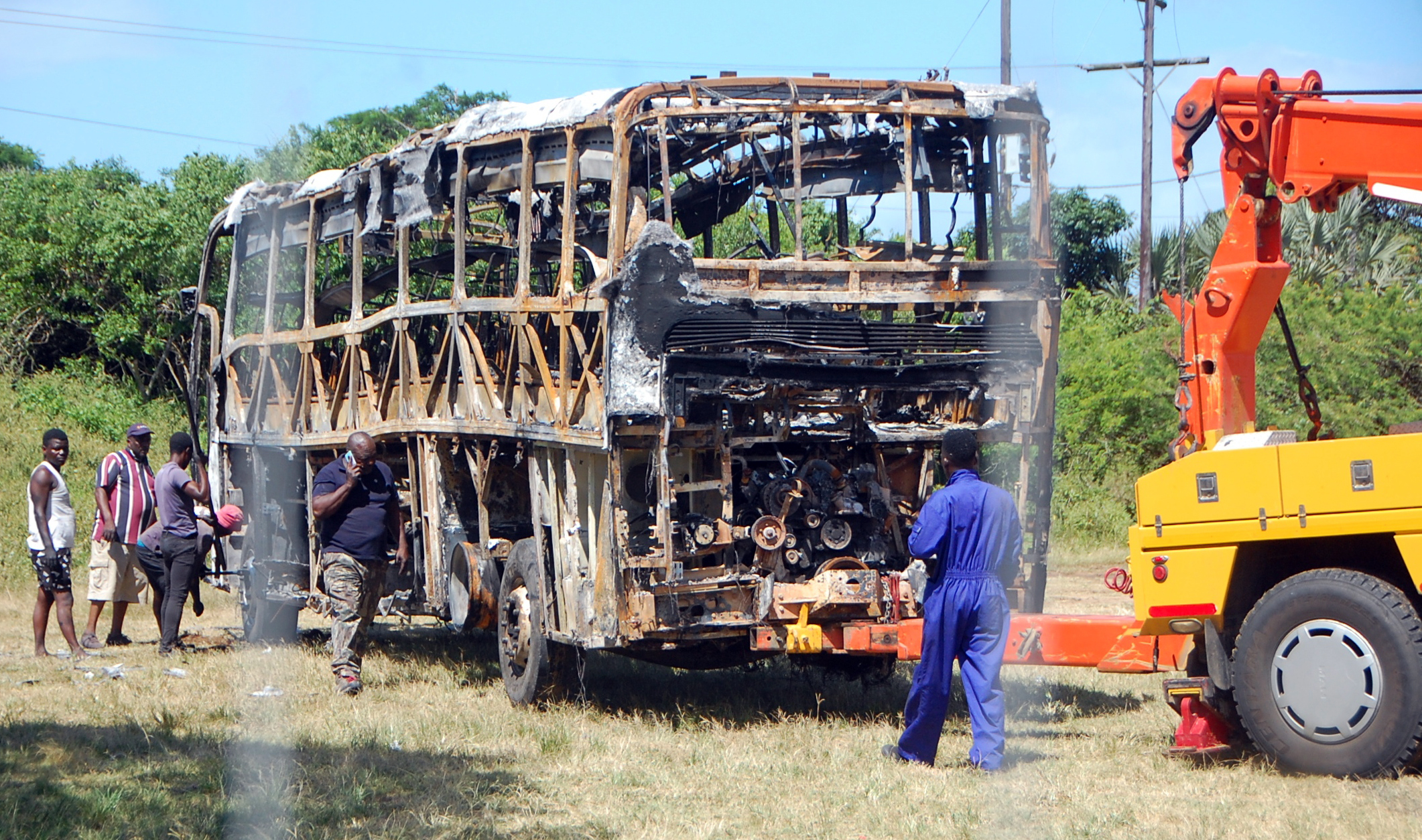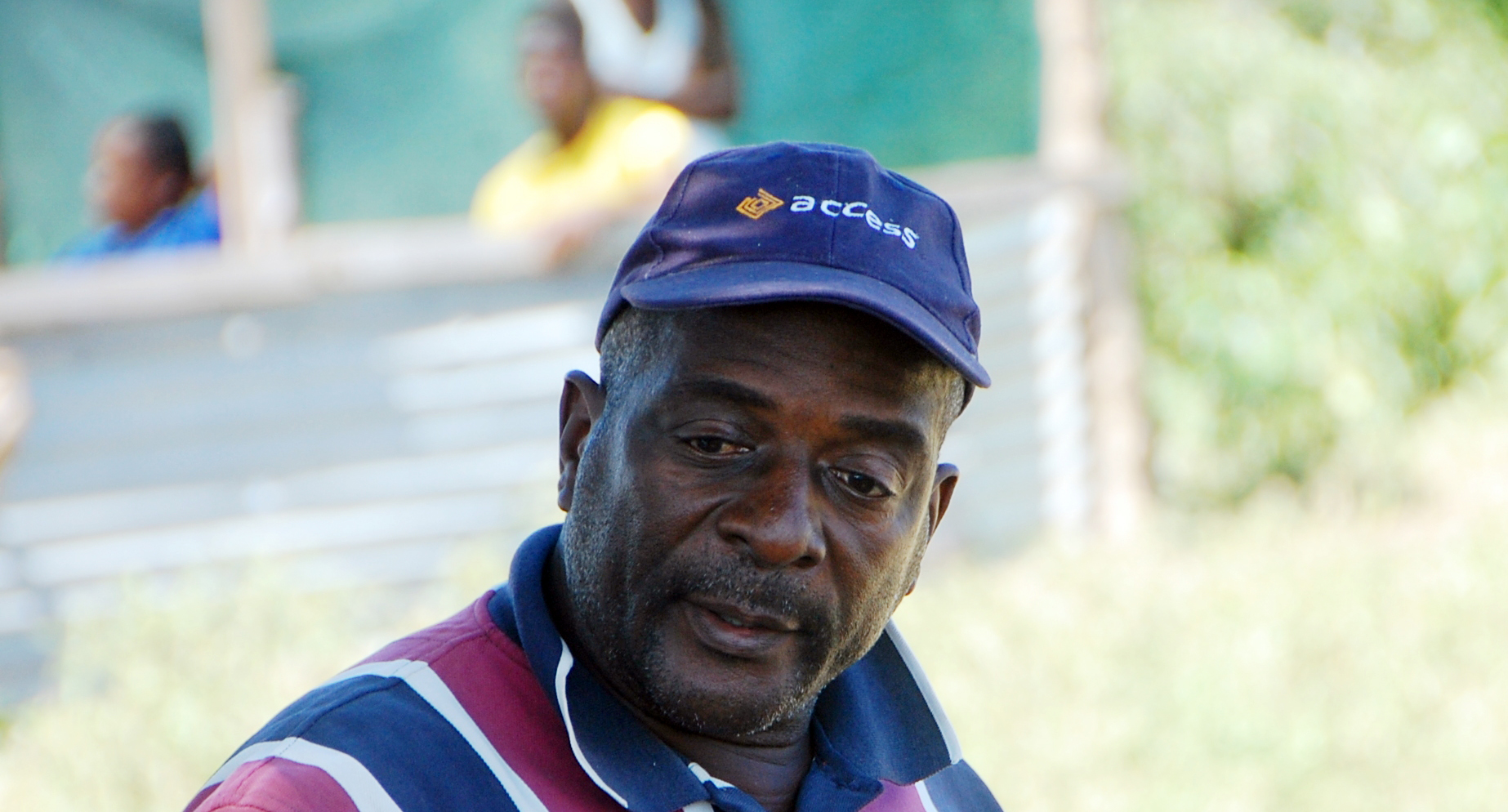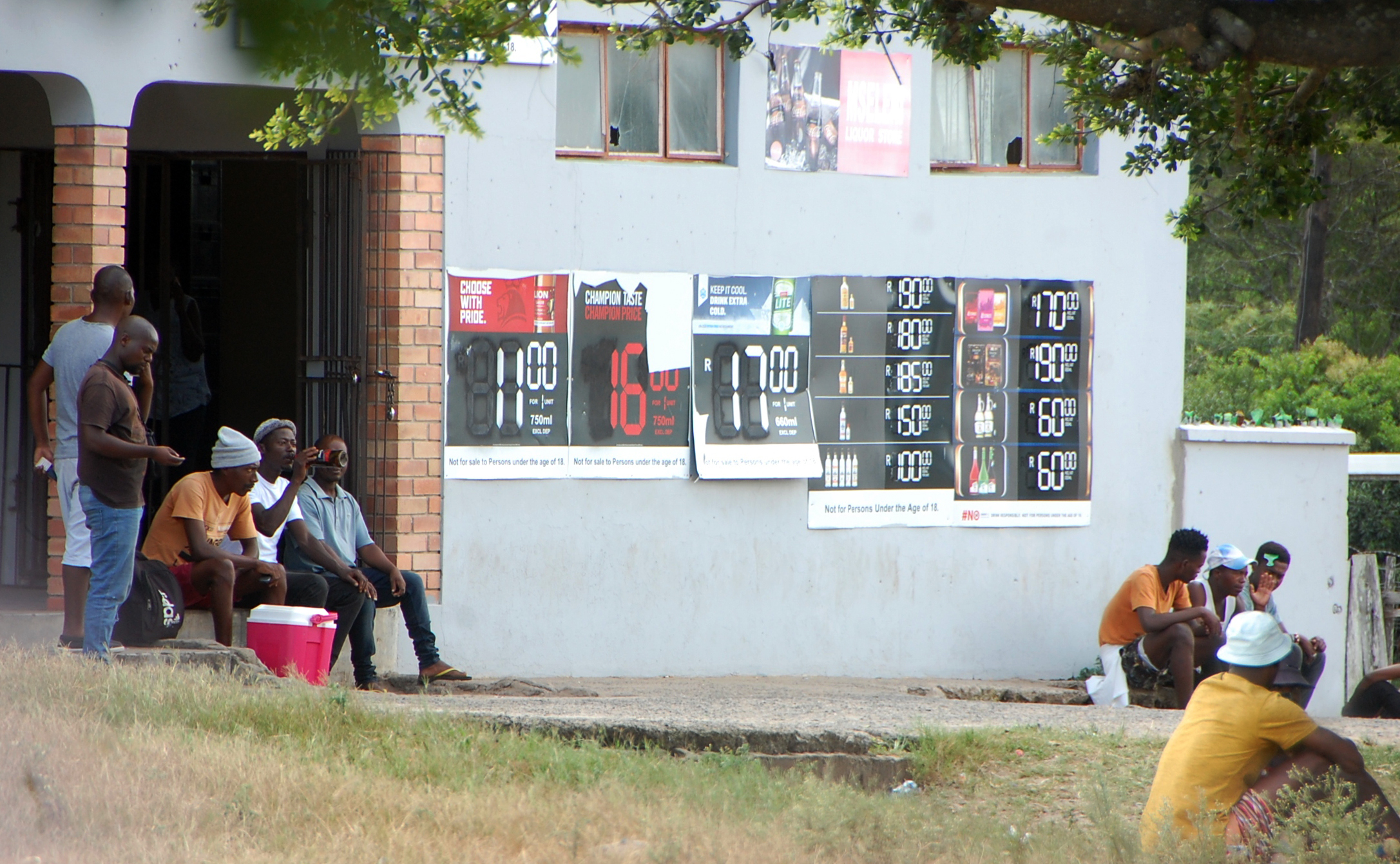Home › Forums › A SECURITY AND NEWS FORUM › Violent criminal torchings add to deadly cocktail of unchecked KZN-Mozambique cross-border crime
- This topic is empty.
-
AuthorPosts
-
2023-02-06 at 17:13 #392220
 Nat QuinnKeymaster
Nat QuinnKeymasterTension and the threat of open violence is constant in the northern KwaZulu-Natal towns and villages bordering Mozambique following the brazen activities of cross-border crime syndicates. In recent weeks, communities have been protesting in frustration and some have been taking the law into their own hands – with opportunistic criminal elements creeping in, evidenced by the torching of a Mozambican truck and a bus late in January, and further incidents in February.
The area is seen as a gangster’s paradise, where everything from vehicles and drugs – cocaine, heroin, meth – to counterfeit cigarettes and other goods are smuggled through the porous fence separating South Africa and Mozambique.
For years South African and Mozambican authorities have been aware of the cross-border syndicate rings smuggling vehicles and other goods to the other side, but little has been done to curb it.
See Part Two here: Cross-border crime – SIU probe into stalled R85.7-million Mozambique border wall nears completion
Now angry communities are taking the law into their own hands, with devastating consequences for relations between the two countries and citizens.
Late in January, angry communities in Mbazwana torched a Mozambican truck on the R22 highway between Hluhluwe and Mbazwana. A few minutes later they stopped a Mozambican luxury bus from Maputo headed for Durban, forced (Mozambican and South African) tourists out and torched it.

A burnt truck and bus were towed away on the R22 near Mbazwana north of KZN after it was set alight near iSimangaliso Wetland Park on 26 January 2023. (Photo: Supplied) The tourists were compelled to walk some three kilometres to find help. Days later the torching of Mozambican-owned vehicles continue on the R22 road between Hluhluwe and Mbazwana (on the South African side).
Police say seven vehicles, including a bus and a truck, have been torched in the area since last week.
Local police officers and worried community members say the cross-border crime in Manguzi and surrounding areas became prevalent in the 2000s and various government efforts to root it out had failed to produce results. They believe that local and international crime syndicates have targeted the area.
Getting statistics on cross-border crime is tricky as it is not a separate category, so listings are under hijackings, abductions, kidnapping, house robberies and others.
A research paper titled South African Borders as the Hotspot for Corruption and published by Right for Education in October 2022 states that although statistics on the extent of cross-border crime are hard to come by, “South African borders are emerging as hotspots for severe crimes and atrocities.
“This practice is more prevalent on the border between South Africa and Mozambique in northern KwaZulu-Natal. Patterns of cross-border corruption and criminal activities affect the local communities in many ways. The government has made remarkable strides to address this issue by deploying large numbers of soldiers and border police officers along the borders, but all these efforts have proven futile. Yet, corruption among border officials has become the main reason for these atrocities not to cease.
“There is strong evidence that many criminal networks engage in poly-criminal activity … criminal groups facilitating irregular migration may also collaborate with networks involved with other types of serious and organised crime such as the production and provision of fraudulent documents, corruption, safe houses and transportation, illicit money transfers and laundering,” it stated.
Daily Maverick has written extensively on the activities of cross-border crime syndicates in the area. Residents told of terrifying incidents of abductions by armed bandits and being taken to the Mozambican border fence and dumped there while their vehicles were spirited away. These incidents continue and the modus operandi of the syndicates are still the same.
‘Terrified’ bus driver’s account
Daily Maverick arrived on the scene a day after the torching but the remains of the truck and the bus were still there. The owner of the bus, the driver and four assistants and two tow truck staff were accompanied by highly armed police officers as they dragged the bus away, taking it to Manguzi.
Gino Matsinhe, the 47-year-old bus driver, said he had never been so traumatised in his life. He said for years he had driven through this route and had not expected anything untoward to happen.

Gino Matsinhe, a bus driver from Mozambique speaking at the site where his bus was set alight on the R22 near Mbazwana north of KZN on 26 January 2023. (Photo: Supplied) “Our company takes passengers through this route – between Maputo and Durban – every Tuesday, Thursday and Sunday. On the day I had 42 passengers. I saw about 15 armed men who pointed guns and ordered me to stop. On the side of the road there were about four Mozambican cars that had been stopped and the occupants were beaten up and robbed.
“Other assailants had guns, others machetes and others had sticks. They demanded money from myself and the passengers, with our bags. They ordered us out of the bus. Someone had petrol and they started dousing the seats. Within 15 minutes the bus was in flames. I was terrified, my passengers were fearing for their lives,” he said, adding that he and fearful passengers walked a long distance to the nearest rural retail supermarket before they could get help.
Luciano Michael, the owner of the bus, said the torching of his bus was a big blow to him and he now has to reconsider whether to continue with the services, especially if tensions and violence escalate further. He declined to comment on the question of what impact the attacks would have on the relationship between citizens of both countries.
Tales of abduction and hijacking
In November 2022, a 41-year-old man from Mseleni said he was attacked by a group of six syndicate members who forced him and his family into his Ford Ranger, which was less than two months old.
“They robbed us of all the valuables. I was scared they were going to rape my wife and children but they didn’t. When we were in the bushes near the Moz border fence they forced us off the vehicle and drove faster. It was only after four hours when we were able to get assistance from one of the houses near the bushes.
Daily Maverick tried to speak to several people near the scene of the torchings but everyone claimed not to have seen anything.

Young people sitting at the local shop in the Mseleni area near Mbazwana north of KZN are all worried about car hijackings taking place in the area. (Photo: Supplied) Xolani Zikhali, chairperson of the Umkhanyakude District community policing forum, was part of a group of local community members that met a delegation of SAPS senior officers led by SAPS National Commissioner General Fannie Masemola “to asses police’s response to cross-border crimes in the Umkhanyakude District in KwaZulu-Natal.” The meeting took place in kwaMduku Community Hall in Hluhluwe.
Zikhali said it was doubtful that the meeting would bear the desired results as “local communities are restless and very angry”.
“The communities are very angry and they are now impatient, not willing to listen to any kind of explanation. This has been a perennial problem, we have been suffering from these types of crimes and victimisation for years,” he said.
Zikhali said the modus operandi of the cross-border crime syndicates is to come into victims’ homes at night, force the occupants to open their doors, rob them, force the victims to load valuables and appliances into their own vehicle, be taken hostage with their family members to the Mozambican border fence where they are abandoned.
“These syndicates force you to help them load solar panels, TV sets and other valuables into your own vehicle. In some instances, victims have been forced to watch as their wives and or children have been raped,” Zikhali said.
He added that government and SAPS promises to curb these cross-border crime syndicates have come to naught. “Even if victims travel to Mozambique to look for their vehicles, they see their vehicles but efforts to bring back these vehicles are frustrated by Mozambican authorities. All these things are not sitting well with members of the communities, who are now taking [the law] into their own hands” he said.
His sentiments were echoed by 33-year-old Keneth Ngubane, a resident of Mseleni village, also near the R22 highway, who said communities have now decided to take the law into their own hands.
“When Mozambican cars are passing through here they are stopped and searched. Those suspected of belonging to criminals are attacked and torched,” he said.
Some community members said the tensions have given local thugs an opportunity to take advantage and rob Mozambicans.
Police officers stationed at Manguzi said the cross-border crime unit has been beefed up with more than 80 specialists to crack down on the syndicates. One officer said this has forced syndicate members to move away from Manguzi into outlying areas like Mbazwana, Hluhluwe and Jozini.
“I don’t think the intervention will have much effect on the activities of the cross-border crime syndicate. I think they should have invested more on crime intelligence, where spies are paid to infiltrate the syndicates. That way we’ll know who are the members of these cross-border syndicates and how they operate so that if people are arrested, they are also convicted as well,” he said.
“The problem here is that Mozambican officials are working with the syndicate and the members of the syndicate know that once they go to the other side of the border, we cannot touch them. So they come into South Africa at night, do their dirty work and go back to Mozambique before sunrise,” he said.
KZN police spokesman, Colonel Robert Netshiunda, said the Hluhluwe meeting was tense as community members attending “expressed anger, frustrations and concerns about crime in the area”.
“The aim [of the meeting] was to assess the extent of the cross-border crime and get the extent of the problem from the affected residents themselves.
“Over 100 police officers from various disciplines, including combat, detectives and crime intelligence have been deployed in the area [in the past few months] to increase capacity and intensify operations in the area.
General Masemola said while the anger of the community is understandable, police officers will take action against those who are taking the law into their own hands. He said cases of malicious damage to property have been registered with the police and these will be investigated.
“Taking the law into your hands by torching vehicles will only exacerbate the problem. We have a national deployment and intervention that will ensure we heighten and improve police visibility.”
Masemola added that “the SAPS is committed and will continue to engage the Mozambican government to ensure that collectively lasting solutions are implemented to clamp down on vehicle theft syndicates.”
Guy Lamb, a criminologist at Stellenbosch University, said the biggest problem in KZN/Mozambican border areas is the proliferation of dangerous weapons from Mozambique which have found their way into the hands of criminals.
“Although there are not as many weapons in that region as there were in the 90s, there are enough in the hands of syndicates to carry out the kind of robberies and hijacking that they are doing.”
Lamb said the best course of action is for the Southern African Regional Police Chiefs Cooperation Organisation to be activated and that would allow South African and Mozambican authorities and the armed forces to conduct joint operations to target the cross-border syndicates.
“The best solution, that has worked in the past, is to have these joint operations. In the past, these joint operations were funded by the European Union and the countries were able to effect arrests and stop the syndicates. But these funds from the EU have dried up in recent years and I don’t know whether South Africa will be able to fund these joint operations from its own budget to stabilise the areas and stop these crimes,” said Lamb.
At the meeting in Hluhluwe, the Mozambican delegation committed their government to working with their South African counterparts to curb the cross-border crimes.
The meeting heard of reports that two vehicles from local villages and an ambulance from the local hospital had been hijacked in Umkhanyakude District on that Tuesday morning. DM
Journalists’ bylines have been withheld for security reasons.
Relentless Mozambique-South Africa cross-border crime s… (dailymaverick.co.za)
-
AuthorPosts
- You must be logged in to reply to this topic.
